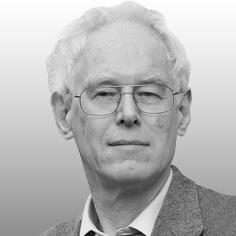Cutting our carbon emissions is not just a matter of technical measures, it requires a dramatic cultural change and real political will

In December, I went to the Radical Emissions Reductions conference at the Royal Society, organised by the Tyndall Centre. Four years after the disastrous Copenhagen CoP 15 conference failed to reach a deal, the science has become firmer, emissions higher, severe weather events more frequent, and the noose tighter. Yet the political will is drastically lower, clutching at the straws of fracking and Arctic oil extraction and putting the planet in a power-dive to unsustainability.
Tyndall’s Kevin Anderson exposed the conflict between the lip-service by policymakers to limiting global warming to 2°C (or preferably less) and the trajectory of increasing emissions. Changing the target was no option: the outcomes would be catastrophic for human society. We will soon pass the point of no return. Rich countries must consider radical action, cutting emissions by 8-10% a year.
In my own experience, many non-domestic buildings can save 20% at low cost by avoiding waste and improving control and management; and a further 20% cost-effectively. It just needs the will to do it.
Could the UK do this, and set an example to the world? Certainly not if the Treasury continues to encourage more fossil fuel extraction. Certainly not with the long lead times of nuclear power, not to mention all the risks and uncertainties. So what could we do? It is too late for technical measures alone, it needs driving by culture change. Anderson estimated that fewer than 5% of the UK population accounted for about half its emissions: some of these were in the room. How about a bit of personal and organisational restraint in response to the global constraints; together with a Manhattan project to invest in energy and carbon-saving, not infrastructure that increases emissions, as new runways will? Is your journey really necessary?
Other speakers drew attention to low-hanging fruit: LED lamps, more efficient cars and ships; and how far one could go by getting down to it, with an inspiring example from Dublin fire stations. In my own experience, many non-domestic buildings can save 20% at low cost by avoiding waste and improving control and management; and a further 20% cost-effectively. It just needs the will to do it.
Some speakers and delegates had restrained themselves from flying and were on video links, including Naomi Klein from Canada, who is writing a book on climate change. In her keynote, she said transformative policies must be backed by transformative politics. She and other speakers found conventional policymaking had become so trapped by the ideology of neo-liberal market fundamentalism that it could be difficult even to find space for discussion. Citizens had been infantilised and reduced to consumers; and many mainstream environmentalists had fallen into the hands of the corporates. In the name of free trade, the WTO was now seeking to undermine fracking bans and state support for wind farms and local manufacturing. She challenged the radical reductions movement to create an enabling environment in which different policies could flourish.
Other speakers said scientists must realise that the numbers did not speak for themselves. They should seek political influence, getting the public onside and talking to bodies they often overlooked, like trades unions. However, the academics present, even the more radical ones, felt uncomfortable about combining political activism with scientific objectivity. Maybe we need better interpreters.
Who went to the conference? Mostly academics, but also representatives of policymakers, NGOs and industry from around the world. Green Party MP Caroline Lucas was there both days, and chaired a session. In her summing-up, she said the UK had a broken political system; and the government lacked not the evidence but the will to do what was necessary. We had to fight on: another world might be possible.
At this important event, where were the representatives of the “greenest government ever”, or its civil service? Caroline Lucas said they seemed to inhabit a different biosphere. Certainly, not a single one was on the delegate list.
Abstracts and videos of the conference can be found at www.tyndall.ac.uk/radical-emission-reduction-conference-tyndall-centre-event-confronting-challenge-climate-change
Bill Bordass is a building scientist and founder of William Bordass Associates



























No comments yet